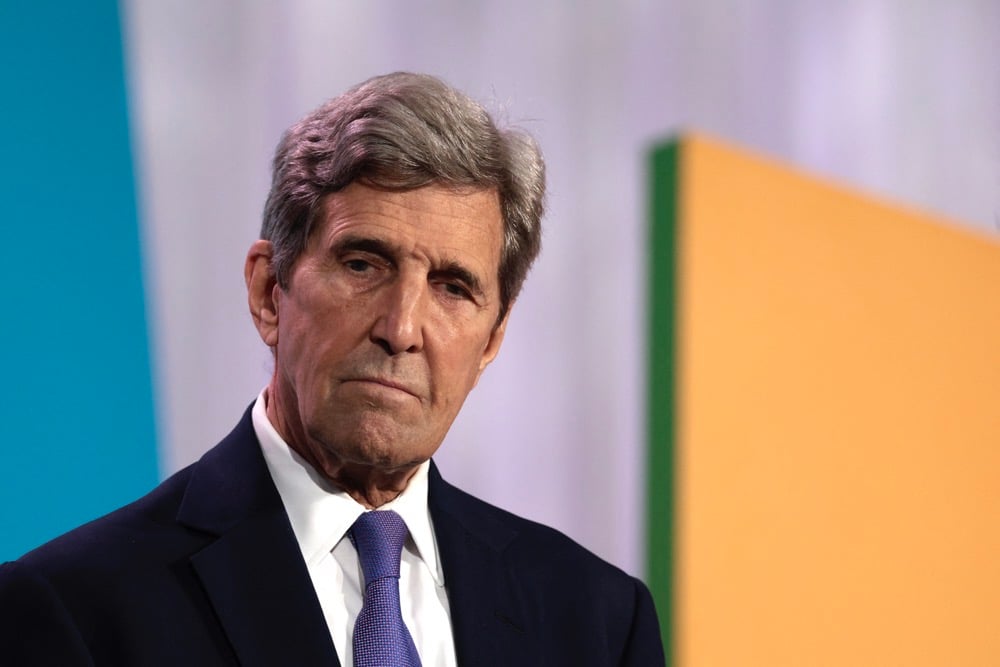CHICAGO: The US and other developed countries should assume the majority of the financial burden in addressing climate change issues resulting from global warming, President Joe Biden’s climate envoy conceded on Wednesday. Former US Senator John Kerry, Biden’s special envoy on climate, told reporters during a press briefing attended by Arab News that the majority of developing countries are the “most vulnerable” to climate change but have contributed the least to global warming.Kerry acknowledged concerns expressed by African countries over the current allocation of funds to fight climate change and said those concerns would be addressed at the UN’s 27th Climate Change Conference to be held at Sharm El-Sheikh in Egypt from Nov. 6-18.”I think leaders of countries in Africa are 100 percent legitimate to be upset over the current allocation of funding. I’m upset over it. I think that the developed world has to take the lead in helping the developing world to be able to withstand the impacts of climate and to get ahead of the curve on the new energy future, and I’m all for it. I was just in Africa. I was in the DRC. I was in Nigeria. I was in Senegal, met with President Macky Sall, who is doing a great job of trying to advocate for the region,” Kerry said.”I think what’s important is that we’ve got to find new mechanisms of releasing the funding and new ways of providing concessionary funding to help countries to transition.”Kerry said that the US is deeply committed to addressing the concerns of developing nations, reflected in the $12 billion the US has committed to address climate inequities.”The vast majority of the impact of what’s happening is coming from 20 countries — the 20 most developed nations in the world. And sub-Saharan Africa, there are about 48 countries that are responsible who are only 0.55 percent of all the emissions in the world. Africa as a whole is only 3 percent of all the emissions, yet 17 of the most vulnerable countries in the world are in Africa,” Kerry said.”I share the frustration. We have to get this allocation right, which is why the United States supported completely the doubling of money for adaptation and President Biden stepped up and has created an Emergency Program for Adaptation and Resilience with $12 billion allocated over five years, $3 billion this year in our budget. We’re really deeply committed to this, and I hope this will be the year where people all kind of get on the same page, recognizing that there are some special inequities and they deserve some special attention.”Kerry said that he was looking forward to COP28, which will be hosted by the UAE. He said that the US is working “very closely with Dr. Sultan Al-Jaber and with His Excellency the President Sheikh Mohamed bin Zayed.” But he added he did not want to get ahead of the COP27 conference and that the UAE was also in agreement to focus first on COP27.”What you see happening around the world now makes it more urgent and more clear than ever that we need to step up and get this job done — every country. No country has a right to be delinquent in not putting up an NDC, not strengthening it where they can, and not being part of this effort,” Kerry said.”And the scientists tell us that what is happening now — the increased extreme heat, the increased extreme weather, the fires, the floods, the warming of the ocean, the melting of the ice, the extraordinary way in which life is being affected badly by the climate crisis — what we’re seeing today is going to get worse unless we address this crisis in a unified, very forward-leaning way. “And the answer — and the truth is, that the upside of doing that is so much bigger and better than the downside of not doing things over these next few years. You can’t avoid the scientific reality of what’s happening with increased emissions. We have to capture emissions. And people in every country in the world should be absolutely adamant about demanding that they get clean air, that their lakes and rivers and streams can have fish and not dry up, and that they’re going to be able to produce food in the places their families have produced food for centuries.”
Developed nations should assume burden in addressing climate change, US envoy concedes




